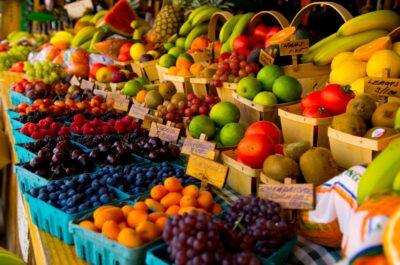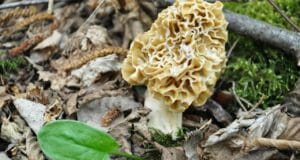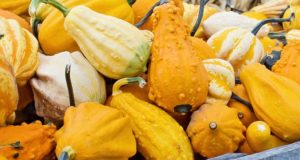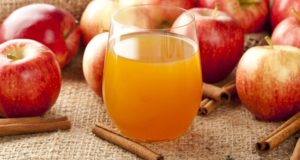|
Listen To The Article
|
Ever wonder which fruits and vegetables you should only buy organic or simply grow? If so, the Environmental Working Group’s newest Shopper’s Guide can help.
For over a decade, the Environmental Working Group (EWG) has published an annual guide on pesticides. This year, the study ranked pesticide residue on 48 popular fruits and vegetables and more than 32,000 samples taken by the U.S. Department of Agriculture (USDA) and the Food and Drug Administration (FDA).
According to the report, the USDA found 10 different pesticides in 5 percent of peach baby food. And nearly a third of the peach baby food samples would violate the European guideline for pesticides in baby food.
Of the applesauce samples, 18 percent contained acetamiprid, a pesticide that may disrupt the developing nervous system. The USDA also discovered that 17 percent of the applesauce samples contained carbendiazim, a fungicide.
Unfortunately, some apple juices also contain pesticides.
About 14 percent of the apple juice samples contained DPA, a pesticide banned in Europe in 2012.
Should parents be concerned about pesticides? Yes. Children—especially babies and young children—are vulnerable to pesticides. According to the Pesticide Action Network (PAN), children exposed to high levels of pesticides have higher incidences of “birth defects, neurodevelopmental delays, cognitive impairment, childhood brain cancers, Autism Spectrum Disorders (ASD), Attention-Deficit/Hyperactivity Disorder (ADD/HD), and Endocrine disruption.”
Pesticides in Produce
Other startling findings in the report include:
- Each sample of imported nectarines tested had residue from at least one pesticide.
- Of the apple samples, 99 percent tested positive for at least one pesticide.
- Potatoes had more pesticides by weight than any other produce.
Do grapes have a lot of residue from pesticides? Yes. One grape sample had residue from at least 15 different pesticides. The study also found that each sample of celery, cherry tomatoes, imported snap peas and strawberries showed 13 different pesticides apiece.
Story continues below video
Below is a list of the produce that you should always grow or buy organic.
The Dirty Dozen:
- Apples
- Strawberries
- Grapes
- Celery
- Peaches
- Spinach
- Sweet Bell Peppers
- Imported Nectarines
- Cucumbers
- Cherry Tomatoes
- Snap Peas
- Potatoes
Produce With Fewer Pesticides
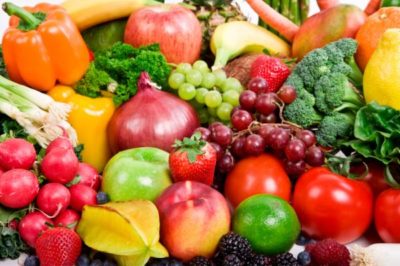 With all the pesticides out there, it seems as if no conventionally grown fruits and vegetables are worth buying. But thankfully, that’s not always the case.
With all the pesticides out there, it seems as if no conventionally grown fruits and vegetables are worth buying. But thankfully, that’s not always the case.
The report found that only 1 percent of avocado samples tested positive for any detectable pesticide. Other results included: 89 percent of pineapples, 82 percent of kiwi, 80 percent of papayas, 88 percent of mangos, and 61 percent of cantaloupes had no detectable levels of pesticides.
Perhaps the most surprising discovery was that most of the sweet corn found in the produce section of supermarkets is not genetically modified and doesn’t contain a lot of pesticides. The reason why this is so startling is because the USDA says 90 percent of the corn grown in the U.S. is genetically modified. Still, GMO corn and other dangerous ingredients are lurking in plenty of processed foods. To find out whether or not a packaged food contains GMO ingredients, go to the Non-GMO Project.
Below is a list of the “Clean Fifteen” that contained little to no pesticides in the samples.
- Avocado
- Sweet Corn
- Pineapples
- Cabbage
- Frozen Sweet Peas
- Onions
- Asparagus
- Mangoes
- Papayas
- Kiwis
- Eggplant
- Grapefruit
- Cantaloupe
- Cauliflower
- Sweet Potatoes
Do you agree or disagree with the lists? Let us know in the comments section below.
Sign up for Off The Grid News’ weekly email and stay informed about the issues important to you
 Off The Grid News Better Ideas For Off The Grid Living
Off The Grid News Better Ideas For Off The Grid Living

